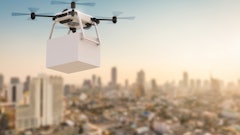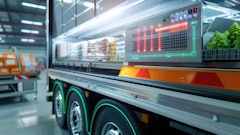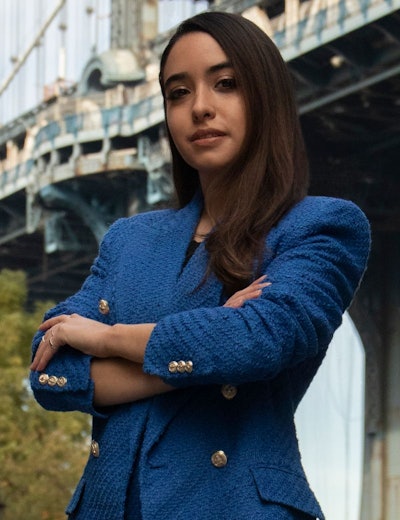
Joshe Ordonez is the founder and CEO of Airpals, an AI parcel management platform and said to be the first conversational shipping app. Ordonez’s journey began not in tech, but on the production floor and backstage of the apparel industry. For over 10 years, she worked with brands of all sizes, from emerging independent designers to global companies, managing everything from materials sourcing to sample development, production calendars, and international freight. In these high-stakes environments, she quickly became the go-to person for solving operational breakdowns. But what stood out most was the disproportionate burden of “invisible” work, like parcel shipping, coordinating sample drops, sending products to stakeholders, and shipping materials for last-minute meetings. These tasks often fell on operational roles—largely women. So, she built Airpals for the people behind the scenes, the ones asked to “just ship this real quick” and then left juggling outdated systems, endless tracking links, and fragmented carrier accounts. Her entrepreneurial journey also includes founding Loop Fairtrade, a platform connecting Latin American artisans with global designers, and Collab Store, a direct-to-consumer brand co-created with artisans. Ordonez also partnered with Workers’ Justice to raise $50,000 to support NYC delivery workers during COVID-19, providing protective clothing and anti-theft tracking devices. She also led a viral campaign against a luxury brand for stealing IP from Ecuadorian indigenous communities.
Ordonez’s drive to think outside the box is rooted in her journey, from weaving ancient textile techniques with Ecuadorian artisans to building an AI platform for logistics in New York. What inspires her most is the power of reinvention. She’s rewritten the rules at every stage of her career, not by following trends, but by merging unlikely worlds: fashion and tech, logistics and design, storytelling and systems. She believes in making the invisible visible and the “impossible” inevitable.
What sets Ordonez apart is how she’s breaking into tech, from a designer’s mindset, where UX, systems thinking, and cultural intelligence intersect. Her competitive edge is her ability to translate complex logistics pain points into seamless, human-first solutions, especially for operational workers.
Ordonez was named the overall winner of the Rising Stars category for this year’s Women in Supply award, presented by Food Logistics and Supply & Demand Chain Executive, and sponsored by Let’s Talk Supply Chain and Blended Pledge program.
Marina Mayer, editor-in-chief of Food Logistics and Supply & Demand Chain Executive and co-founder of the Women in Supply Chain Forum, sat down with Ordonez to talk about collective strength, the power of reinvention and what it takes to build AI products for the logistics space.
Food Logistics and Supply & Demand Chain Executive: Let’s first talk about you. Tell me a little bit about yourself and your journey to get to this current stage in your career?
Joshe Ordonez: Like many others, my path has been far from linear. In the pursuit of finding myself and my passions, I tried many different jobs. It was never crystal clear what I wanted my career to look like, but from an early age, I knew I wanted to build things, drive innovation, and make an impact, not just in society but in industrial applications too.
It may sound like a cliché, but it’s true, as a kid, I would play with the sewing machines we had at home and couldn’t stop thinking about how things were made and how the pieces in those machines worked together. I grew up in Ecuador, a country rich in craft, agriculture, and beauty. Watching artisans create and farmers harvest and take goods to the local markets deeply shaped how I think about production, the movement of things, and environmental impact.
Like many technologists, I saw Apple’s 1984 ad and fell in love, not just with the product, but with the creativity and boldness of the production. But that wasn’t my only source of inspiration. I was equally captivated by the world of film, television, and art, the storytelling, the aesthetics, the ability to make people feel something deeply. That creative spark led me to fashion school. What pulled me in wasn’t the glamour; it was the curiosity around how things are made and how we can buy a T-shirt for just a few bucks. That’s when supply chain and logistics came into the picture.
Food Logistics and Supply & Demand Chain Executive: Your journey began on the production floor and backstage of the apparel industry, yet you developed an AI parcel management platform. How did you get from the production floor in fashion to AI apps?
Ordonez: It might sound like a leap, but for me it was a natural progression. Fashion school taught me that design and creativity are really just problem-solving. And if you ask anyone in logistics or supply chain, solving problems is the name of the game. Fashion led me into manufacturing and production, from sourcing textiles to patternmaking that reduced waste and cost, managing exports/imports, and coordinating marketing shoots. It was all logistics, end to end.
So how did I end up building AI products for logistics? From early on, I was drawn to automation and AI. Seeing textile machines that automated certain processes fascinated me. I knew this was where we were headed. Communication, whether between people or systems, is at the root of most logistical bottlenecks. Every time I ran into a logistics problem in my past roles, I imagined a technology solution that could fix it.
When I started Airpals, our original idea was a marketplace for local messenger services, and our first pitch deck tagline was "AI for messenger services." Back then, saying "AI" felt like a buzzword, even a liability. Fast forward to today, if you're not thinking about AI, it's a red flag.
After years of experimentation, data collection, and talking to customers, we discovered the real white space, a parcel management platform that centralizes all the carriers companies already use, automates workflows, reduces costly human errors, and empowers operations and logistics teams, which have historically received less corporate investment and attention than departments like marketing, sales, or engineering.
Food Logistics and Supply & Demand Chain Executive: The power of reinvention is what inspires you the most. What does this mean?
Ordonez: If you wake up and do the same thing every day, it's hard to see change. Reinvention is growth. I believe we’re more than human doers; we’re human beings. We don’t need to always be doing to prove our worth, but there’s beauty in embracing change. Reinvention, for me, isn’t about transforming to people-please. It’s about choosing who you want to be in the present. Your past doesn’t have to define your entire story.
I used to be a fashion designer and producer. Reinvention took inner work, curiosity, and learning. It’s not just a personal brand buzzword, it’s a lifestyle. Life becomes boring when you stop learning and trying new things.
Food Logistics and Supply & Demand Chain Executive: You’ve been celebrated for bridging culture and tech. What advice do you have for others trying to do the same in their respective verticals and organizations?
Ordonez: When I talk about culture, I mean heritage. I had the privilege of growing up in one country and building my career in another. That duality made me more conscious of what traditions, values, and beliefs make me who I am, while also helping me learn from the world's largest economy.
I love when innovation honors ancient wisdom. Imagine weaving toquilla straw, a traditional fiber, with industrial equipment to create sustainable products. That blend of old and new sparks real innovation.
My advice? Reflect on what brings you joy in your culture. That could be a value you bring to how you lead or a tradition you introduce into your team. In logistics, for instance, I’m inspired by the Chaskis, Inca Empire messengers who transported goods efficiently across great distances. It’s proof that creativity and logistics have always gone hand in hand.
Food Logistics and Supply & Demand Chain Executive: One of the pieces of advice outlined in your submission pertains to collective strength. Walk us through what this means and why it works.
Ordonez: I can’t say it better than this proverb: "If you want to go fast, go alone. If you want to go far, go together."
Some say the next billion-dollar company will be built by one person using AI agents. Maybe. But true innovation? That comes from collective effort. No one has all the answers. The best products are built by teams with different perspectives, challenging each other, and creating something greater together.
Most of the greatest technological, social, and cultural achievements in human history were collective efforts. Real growth happens when we build diverse teams with complementary strengths. That’s how you get innovation that sticks. And let’s be honest, it would be incredibly boring to be a company of one.
Food Logistics and Supply & Demand Chain Executive: The Rising Stars category recognizes young or newer professionals whose achievements, hard work and vision have shaped the supply chain network. What advice do you have for other young, new professionals entering the supply chain space?
Ordonez: Unlike marketing or design teams, logistics can feel isolating. You're constantly putting out fires, which doesn’t leave much room to take on additional responsibilities that support career growth.
Supply chain and logistics are the backbone of every industry. That means what we do matters, a lot. My advice? Build healthy habits to avoid burnout, embrace technology, and connect with your community. One of the best energy sources is other people. Give first. Share your knowledge. Uplift others.
You never know when you’ll need a helping hand. As your network grows, you’ll find comfort in knowing there’s always someone to call for advice.
Food Logistics and Supply & Demand Chain Executive: What are some things not addressed above that would be pertinent to share with our readers detailing your strengths, achievements, overall goals, etc.?
Ordonez: As supply chain leaders, our job is to mitigate risk and keep things moving. But sometimes that focus on stability can blind us to transformation. There’s a gap between the AI buzz and real-world implementation.
Everyone is saying AI is a priority, but there are so many internal roadblocks. That’s where we come in. At Airpals, we’re outsiders by design, bringing fresh perspectives to legacy problems. We challenge the status quo.
If you keep doing the same thing every day, nothing gets better. My advice? Be open to trying new things. Transformation doesn’t happen by accident; it happens when someone dares to change the way things have always been done.
Ordonez will participate in live, in-person roundtable discussion with other overall winners from the 2025 Women in Supply Chain award at this year’s Women in Supply Chain Forum. CLICK HERE to register to attend and learn more.
CLICK HERE to learn more about the other 2025 Women in Supply Chain award winners.

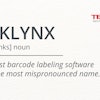

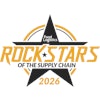
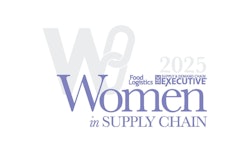
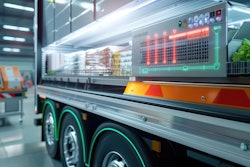


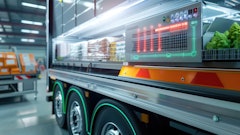
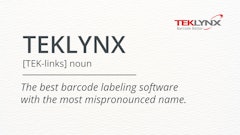

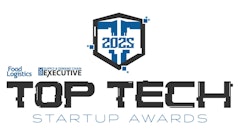

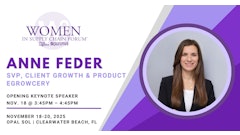
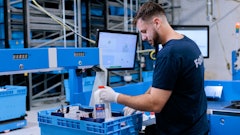
![Top Tech Startup Logo 2025 Vertical [color] (1)](https://img.foodlogistics.com/mindful/acbm/workspaces/default/uploads/2025/07/top-tech-startup-logo-2025-vertical-color-1.pZkBK95TLe.png?ar=16%3A9&auto=format%2Ccompress&bg=fff&fill-color=fff&fit=fill&h=135&q=70&w=240)
